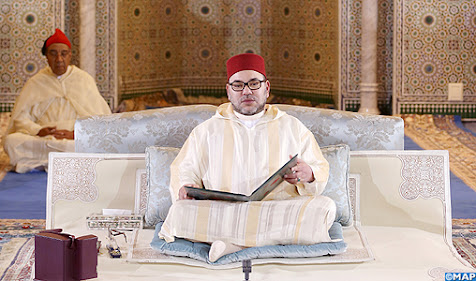Spiritual Royalty
Spiritual Royalty
The government in Morocco is organized in such a way that characterizes it as a constitutional monarchy. The way in which power, both political and religious, is secured is through claims of descent from the Prophet Muhammad. Through these claims of descent, the monarchy solidifies its religious authority which allows it to shift the religious tendencies of the country which simutaneously influences political alliances. In pre-colonial as well as post-colonial Morocco, power and religion have gone hand in hand. Before the colonization of Morocco, sultans had always formed mutually beneficial and constantly changing relationships with Sufist leaders. The adoption of Sufism by the Moroccan monarchy has ebbed and flowed over the years. For a while, Morocco shifted away from Sufism towards Salafist Islam. However, after 9/11 and the correlation between Salafist Islam and terrorism, Morocco began to shift its attention away from this religious view, refocusing its attention to Sufism. Morocco is currently reviving its interest in Sufism since this religious perspective is characterized by more laissez-faire interpretations of Islam, thus signalling to countries in the West that they are not associated with Islamic extremism.
During our travels, I heard along the grapevine that one of the ladies who had been traveling around with us was considered spiritual royalty. She was supposedly a descendent of a spiritual prophet and was thus considered nobility, aqcuiring great wealth and status. When it comes to monarchies, I had always been aware that many kings and queens attain and have attained throughout history such a status through being "chosen by God." However, I was never aware that some monarchies claim direct descendence from spiritual prophets. This was fascinating to me and immediately made me think, "what is this claim based on? How is this determined?" This made me think of the subjectivity of the claim and how this is a wonderful way to signal moral / unifying principles to the public to garner respect from the public. I have seen that Mohammed has been characerized as a spiritual leader, and was even recognized by the Pope as such. Through the veneer of a spiritual leader, Mohammed VI creates the illusion of transformational leadership. Whether or not the king is a transformational leader depends on the eye of the beholder.
Informational Links:
The Moroccan Monarchy’s Political Agenda for Reviving Sufi Orders
Morocco, commander of the (African) faithful?


Comments
Post a Comment